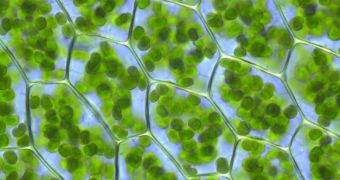A scientific initiative to develop methods of boosting the efficiency of photosynthesis in plants has recently awarded $4 million to four transatlantic research groups. Each of them will analyze a specific aspect of the problem.
The reason why such investigations are being conducted is because experts want to devise a way of alleviating some of the most pressing issues our world is faced with today, such as for example insufficient food and our dependency on fossil fuel.
If we somehow manage to improve the rate at which vegetation converts sunlight and carbon dioxide into oxygen and energy, then we could develop crops that grow faster and taller than ever before.
This will be of tremendous use both for food production – as in, larger crops – but also for obtaining more biofuels from the same amounts of raw materials. Experts with the University of Cambridge, in the United Kingdom, are involved in two of the research projects.
“Plants really matter, and for the next generation, plant and microbial productivity will become the focus of key global issues: the basis for feeding an additional 2-3 billion mouths, to drive forward an economy currently trading on past sunlight, and maintain biodiversity in the face of climate change,” explains Howard Griffiths.
The expert holds an appointment as a professor in the Cambridge Department of Plant Sciences. He says that the bulk of the funding came from a collaboration between the UK Biotechnology and Biological Sciences Research Council (BBSRC) and the US National Science Foundation (NSF).
This effort allowed the best-prepared scientists in the two countries to come together on an issue that is affecting the entire world. The limitations that photosynthesis, as a natural process, is subjected to has tremendous implications for the entire world.
To get an idea about how important this process is for us, consider the fact that complex life would have not been possible without it. If plants had not begun to convert CO2 into oxygen, life on this planet would have still been confined to the form of bacteria, algae and microbes.
“The enzymatic powerhouse Rubisco takes carbon dioxide from the atmosphere and uses light energy to produce sugars and other building blocks of life,” professor Griffiths explains.
“However, the enzyme is rather flawed and somewhat promiscuous: it engages with oxygen as well as carbon dioxide, to the detriment of potential plant productivity,” he goes on to say.
“Some plants have evolved mechanisms, which act like biological turbochargers, to concentrate CO2 around Rubisco and improve the enzyme’s operating efficiency,” the expert argues.
“These carbon concentrating mechanisms have evolved in certain key crops, such as sugar cane and maize. Other plants, such as aquatic algae, have developed mechanism in parallel which actively concentrate bicarbonate as a source of CO2 for Rubisco,” he concludes.

 14 DAY TRIAL //
14 DAY TRIAL //